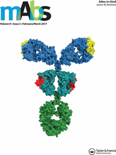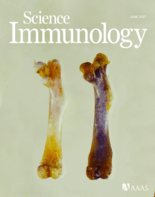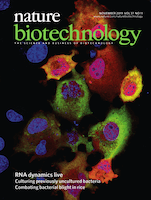
mAbs
Scope & Guideline
Unlocking the secrets of immunity and innovation.
Introduction
Aims and Scopes
- Monoclonal Antibody Engineering:
Research dedicated to the engineering of monoclonal antibodies, including modifications to enhance efficacy, specificity, and stability, as well as the development of novel antibody formats such as bispecific and multispecific antibodies. - Therapeutic Applications:
Exploration of the therapeutic potential of monoclonal antibodies across various diseases, including cancer, autoimmune disorders, and infectious diseases, highlighting their mechanisms of action and clinical effectiveness. - Biopharmaceutical Development:
Focus on the processes involved in developing monoclonal antibodies as biopharmaceuticals, including formulation, manufacturing, and quality control, with an emphasis on overcoming challenges in production and delivery. - Immunogenicity and Safety Assessments:
Studies investigating the immunogenic potential of monoclonal antibodies and the safety implications of their use in clinical settings, including risk assessment and management strategies. - Analytical and Characterization Techniques:
Advancements in analytical methodologies for characterizing monoclonal antibodies, including mass spectrometry, NMR, and chromatography techniques, aimed at understanding their structural and functional properties. - Machine Learning and Computational Approaches:
Application of machine learning and computational biology to predict antibody behavior, optimize engineering processes, and enhance drug design, reflecting a growing trend towards data-driven research in antibody development.
Trending and Emerging
- Bispecific and Multispecific Antibodies:
There is a rising trend in the development and characterization of bispecific and multispecific antibodies, reflecting their potential to enhance therapeutic efficacy by simultaneously targeting multiple antigens. - Antibody-Drug Conjugates (ADCs):
Research into antibody-drug conjugates has gained momentum, emphasizing their role in targeted therapy for cancer, with a focus on improving efficacy and minimizing off-target effects. - Computational and Machine Learning Approaches:
The integration of computational methods and machine learning techniques in antibody design and optimization is a growing trend, facilitating faster and more efficient development processes. - Targeting Immune Checkpoints and Cancer Immunotherapy:
A significant increase in studies aimed at targeting immune checkpoints, particularly in cancer therapy, showcases the evolving landscape of immunotherapy and the role of monoclonal antibodies in enhancing immune responses. - Glycoengineering and Post-Translational Modifications:
Emerging research on glycoengineering and other post-translational modifications highlights their importance in influencing the pharmacokinetics and immunogenicity of monoclonal antibodies. - Personalized Medicine Approaches:
The trend towards personalized medicine is reflected in the increasing focus on developing monoclonal antibodies tailored to individual patient profiles, aiming for improved therapeutic outcomes.
Declining or Waning
- Traditional Antibody Discovery Methods:
There has been a noticeable decrease in research focused on conventional antibody discovery techniques, such as hybridoma technology, as newer methodologies like phage display and machine learning gain traction. - Single-Use Technologies in Manufacturing:
Research on single-use technologies for antibody production has become less frequent, possibly due to the increasing adoption of more integrated biomanufacturing processes that emphasize continuous production systems. - Generalized Antibody Therapeutics:
The focus on broad-spectrum, generalized monoclonal antibodies is waning in favor of more specialized, targeted therapies that address specific mechanisms of action and patient populations. - In Vivo Animal Models:
Research using traditional in vivo models for antibody efficacy and safety studies is declining, with a shift towards more sophisticated and human-relevant models that can provide better predictive outcomes. - Basic Immunology of Antibodies:
There is a reduced emphasis on fundamental immunology studies related to monoclonal antibodies, as the field increasingly prioritizes translational and applied research that directly informs clinical applications.
Similar Journals

CANCER IMMUNOLOGY IMMUNOTHERAPY
Elevating Understanding of Immune Responses in CancerCancer Immunology Immunotherapy, published by Springer, stands as a premier journal in the fields of cancer research and immunology, holding a prestigious Q1 ranking across multiple categories, including Oncology and Medicine as of 2023. With an ISSN of 0340-7004 and an E-ISSN of 1432-0851, this journal has been a pivotal platform for groundbreaking research since its inception in 1976, continuing to provide insight into the complex interactions between the immune system and cancer. The journal's scope encompasses a wide array of topics, including novel therapeutic strategies, immunological mechanisms, and translational science aimed at advancing treatment outcomes for cancer patients. Renowned for its rigorous peer-review process and high impact factor, it attracts contributions from leading experts and researchers around the globe, positioning itself among the top-tier publications with Scopus rankings that reflect its vital role in advancing the field. Access options are generally subscription-based, ensuring a comprehensive resource for professionals and academics seeking to deepen their understanding and make meaningful contributions to cancer immunotherapy.

Annual Review of Pharmacology and Toxicology
Shaping the future of therapeutic practices.Annual Review of Pharmacology and Toxicology is a leading journal published by ANNUAL REVIEWS, renowned for its comprehensive and critical reviews of the fields of pharmacology and toxicology. With an esteemed history spanning from 1965 to the present and an impressive Q1 ranking in both categories, this journal stands at the forefront of scholarly communication in pharmacological sciences. Researchers are encouraged to submit cutting-edge studies that advance knowledge and innovation in drug development, safety assessments, and therapeutic practices. Although this journal does not currently offer Open Access options, it remains a vital resource for professionals and students who seek to stay updated with the latest high-impact research findings. The journal is indexed in Scopus, boasting remarkable rankings, including Rank #1 in Toxicology and Rank #4 in Pharmacology, reflecting its pivotal role in shaping the discourse in these dynamic fields.

Science Immunology
Championing Open Access to Immunological BreakthroughsScience Immunology, published by the American Association for the Advancement of Science, is a leading journal in the field of immunology, recognized for its significant impact and rigor in advancing our understanding of immune responses and complex diseases. With an impressive impact factor that places it in the Q1 category of both immunology and allergy, as well as miscellaneous medicine, this journal is ranked #7 and #8 in their respective Scopus categories, reflecting its high-quality research output. Since its inception in 2016, Science Immunology has been at the forefront of interdisciplinary immunological research, fostering crucial insights that link immunology with pressing health challenges. The journal is committed to providing open access to its content, ensuring that groundbreaking findings are accessible to a global audience of researchers, professionals, and students. Its anthology not only addresses fundamental immunological mechanisms but also enhances the dialogue on translational applications and therapeutic interventions, solidifying its position as an essential resource within the scientific community.

Antibodies
Exploring the Frontiers of Immune Response MechanismsAntibodies is a leading open-access journal published by MDPI since 2012, focusing on the dynamic and rapidly evolving field of immunology and drug discovery. With an E-ISSN of 2073-4468, this esteemed journal aims to provide a platform for the dissemination of high-quality research on all aspects of antibody research, including novel therapeutic strategies, diagnostic applications, and the molecular mechanisms of immune responses. With an impressive portfolio reflecting its standing, Antibodies boasts a 2023 category quartile ranking of Q1 in Drug Discovery and Q2 in both Immunology and Immunology and Allergy. This positions the journal prominently within its field, further underscored by its Scopus rankings that illustrate its influence and relevance, including a rank of #46 out of 157 in Drug Discovery. As a fully open-access journal, Antibodies ensures that groundbreaking research is readily available to a diverse audience, enhancing the collaborative efforts in the scientific community. The journal's headquarters in beautiful Basel, Switzerland, is a testament to its commitment to maintaining high standards of academic excellence while fostering innovation and knowledge exchange among researchers, professionals, and students worldwide.

Journal for ImmunoTherapy of Cancer
Pioneering Research for Tomorrow's Cancer TherapiesJournal for ImmunoTherapy of Cancer, published by the esteemed BMJ Publishing Group, is a leading scholarly journal dedicated to advancing the field of immuno-oncology. Since its inception in 2013, this Open Access journal has emerged as a pivotal platform for disseminating cutting-edge research and innovative methodologies in cancer immunotherapy. With a remarkable impact factor and stellar rankings, including Q1 listings in multiple relevant categories such as Cancer Research, Immunology, and Molecular Medicine, it plays a crucial role in bridging the gap between basic immunology and clinical applications, thus fostering collaboration among researchers, healthcare professionals, and students. The journal's scope encompasses a diverse range of topics, focusing on the latest breakthroughs and experimental findings in cancer treatment, making it indispensable for those seeking to contribute to the evolving landscape of oncological sciences. Located in the United Kingdom at the British Medical Association House, the journal continues to serve as a valuable resource for those at the forefront of cancer research and therapy.

NATURE BIOTECHNOLOGY
Shaping Tomorrow with Groundbreaking DiscoveriesNATURE BIOTECHNOLOGY, an esteemed journal published by NATURE PORTFOLIO, stands at the forefront of innovation in biotechnological research since its inception in 1989. With an impressive impact factor reflecting its preeminent status—ranked in the Q1 quartile across multiple categories including Applied Microbiology, Bioengineering, Biomedical Engineering, Biotechnology, and Molecular Medicine—this journal is a pivotal resource for researchers and professionals aiming to advance the boundaries of biotechnology. The journal is highly regarded, boasting Scopus rankings in the 99th percentile within its categories. NATURE BIOTECHNOLOGY provides a platform for disseminating cutting-edge findings, with open access options that enhance the visibility and accessibility of its content to a global audience. The scope of the journal encapsulates a diverse range of topics from genetic engineering to pharmaceutical developments, ensuring comprehensive coverage of emerging biotechnological advances. As the field continues to evolve, NATURE BIOTECHNOLOGY remains committed to publishing groundbreaking research that shapes the future of science and industry.

BIOTECHNOLOGY LETTERS
Advancing the Frontiers of Biotechnology ResearchBIOTECHNOLOGY LETTERS is a prestigious peer-reviewed journal that has been at the forefront of biotechnology research since its inception in 1979. Published by Springer, this esteemed journal serves as a vital platform for disseminating cutting-edge research in the fields of applied microbiology, bioengineering, and biotechnology, with a focus on innovative methodologies and technologies. With an impact factor reflecting its critical contribution to the discipline, BIOTECHNOLOGY LETTERS resides in the Q2 and Q3 tiers of various scientific categories, placing it among the notable journals in the biotechnological landscape. Although it offers traditional access options and does not feature open access, the journal embraces a global readership, encouraging submissions from researchers, professionals, and students eager to explore the dynamic advancements in biotechnology. Situated in the Netherlands, it continues to shape the future of the field through relevant, impactful research that addresses contemporary challenges and opportunities in medicine and beyond.

JOURNAL OF HEADACHE AND PAIN
Transforming Understanding in Headache and PainJournal of Headache and Pain, published by BMC, stands as a premier open-access platform dedicated to advancing research and practice in the fields of headache, pain medicine, and neurology. With its ISSN 1129-2369 and E-ISSN 1129-2377, this journal not only garners a significant global audience but also features a robust impact within the academic community, evidenced by its impressive rankings in 2023, placing it in the Q1 category for Anesthesiology and Pain Medicine, as well as Neurology (clinical), with Scopus ranks affirming its position among the top journals in its fields. Since its inception, the journal has provided a vital resource for researchers, professionals, and students, fostering collaboration and innovation through open access since 2011. The journal's scope encompasses interdisciplinary approaches to headache and pain management, offering insights that bridge clinical practice and research, thereby enhancing the understanding and treatment of these pervasive conditions. As it converges its efforts toward a continuous commitment to excellence through 2024 and beyond, the Journal of Headache and Pain remains an essential outlet for disseminating groundbreaking findings and facilitating knowledge exchange in a domain that profoundly impacts global health.

EUROPEAN JOURNAL OF PHARMACEUTICS AND BIOPHARMACEUTICS
Empowering researchers to tackle complex health challenges.European Journal of Pharmaceutics and Biopharmaceutics is a leading academic journal published by Elsevier, dedicated to advancing the field of pharmaceutical sciences through high-quality research. Established in 1991, this multidisciplinary journal offers a platform for the dissemination of innovative findings in pharmaceutics and biopharmaceutics, covering crucial aspects such as drug formulation, delivery systems, and the interface of pharmaceutical formulation with biological systems. The journal is well-regarded for its impact, earning a Q1 status in Pharmaceutical Science and consistent Q2 rankings in both Biotechnology and Medicine (Miscellaneous) categories in 2023, thereby highlighting its significance in the scientific community. With an impressive Scopus ranking of 26th percentile in Pharmaceutical Science and 60th percentile in Biotechnology, it positions itself firmly at the forefront of research, supporting researchers, professionals, and students in their quest to address complex health challenges. While the journal does not offer an open-access option, it facilitates a rigorous peer-review process, ensuring that published articles meet the highest standards of scientific integrity. For those looking to make meaningful contributions to the field, the European Journal of Pharmaceutics and Biopharmaceutics serves as an essential resource and reference point.

JOURNAL OF CLINICAL IMMUNOLOGY
Pioneering Insights into Immune MechanismsJOURNAL OF CLINICAL IMMUNOLOGY, published by SPRINGER/PLENUM PUBLISHERS, is a leading journal in the field of immunology, with an impressive standing as reflected in its Q1 ranking in both Immunology and Immunology and Allergy for 2023. With a history of publication dating back to 1981 and an E-ISSN of 1573-2592, this journal aims to disseminate cutting-edge research on diagnostic methods, therapeutic strategies, and understanding the mechanisms underlying immune responses. Its significant impact is underscored by its Scopus rankings, where it is placed in the top 15% of journals covering immunology and microbiology. The journal does not currently operate under an Open Access model, yet offers a robust platform for sharing essential findings that contribute to advancements in clinical immunology. As a resource for researchers, professionals, and students, the JOURNAL OF CLINICAL IMMUNOLOGY is pivotal in fostering dialogue and disseminating knowledge that enhances our understanding of immune-related diseases.